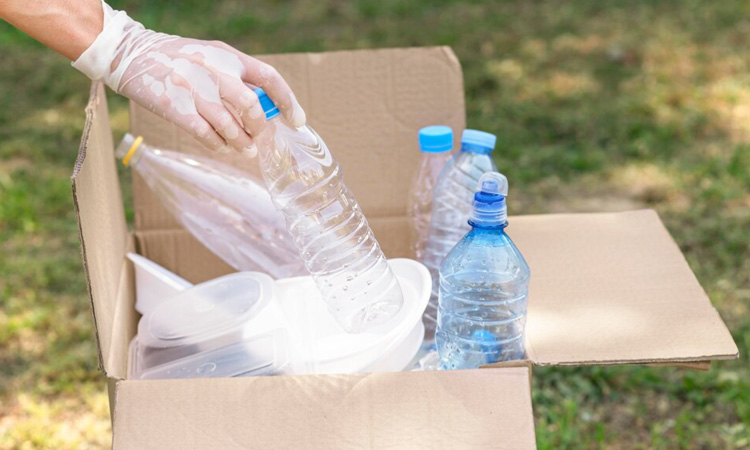As concerns about the environmental impact of plastics intensify, researchers and innovators are stepping up to the challenge of finding viable substitutes. This article explores the latest advancements in the research and application of plastic alternatives, shedding light on promising solutions that have the potential to reshape our relationship with materials and contribute to a more sustainable future.
Understanding the Plastic Predicament
Plastics, ubiquitous in our daily lives, have proven to be a double-edged sword. While offering unparalleled convenience, their persistence in the environment and contribution to pollution have sparked a global call for change. Recognizing the urgency of the plastic predicament has spurred a wave of research aimed at developing substitutes that can maintain functionality while minimizing environmental impact.
Biodegradable Plastics: Nature’s Solution
Biodegradable plastics mimic the convenience of traditional plastics but come with a crucial distinction – they break down naturally over time. Composed of organic materials like cornstarch or sugarcane, these plastics offer a potential solution to the longevity problem associated with conventional plastics. Exploring the capabilities and limitations of biodegradable plastics is essential for understanding their role in waste reduction.
Plant-Based Plastics: Harnessing Nature’s Building Blocks
Plant-based plastics, also known as bioplastics, derive their raw materials from renewable resources such as corn, sugarcane, or cellulose. These alternatives aim to reduce dependency on fossil fuels and lower the carbon footprint associated with traditional plastic production. Investigating the feasibility and scalability of plant-based plastics is crucial for determining their potential as mainstream substitutes.
Mushroom Packaging and Fungal Solutions
Innovative materials derived from mushrooms, specifically mycelium, are gaining attention as eco-friendly alternatives to traditional packaging. Mycelium-based materials are not only biodegradable but also offer a sustainable option for various applications. Examining the versatility and potential widespread use of mushroom-based materials contributes to the growing field of sustainable packaging alternatives.
Applications Beyond Packaging
- Textile Innovations: Fabricating a Sustainable Wardrobe
The fashion industry, known for its environmental impact, is exploring alternatives to traditional synthetic fabrics. Researchers are developing textiles made from recycled plastics, organic cotton, and even innovative materials like pineapple fibers. Understanding the ecological benefits and challenges of these alternative textiles is crucial for transforming the fashion industry’s approach to sustainability.
- Building Materials Revolution: Beyond Concrete and Steel
The construction industry, a significant consumer of traditional plastics, is turning to innovative materials to reduce its environmental footprint. Researchers are exploring alternatives such as recycled plastic bricks, biodegradable insulation, and sustainable concrete additives. Evaluating the durability, cost-effectiveness, and ecological impact of these alternatives is pivotal for reshaping the construction landscape.
Challenges and Considerations
- Biodegradability vs. Durability: Striking the Right Balance
While biodegradable plastics offer promise in reducing environmental impact, questions arise about their durability and effectiveness in certain applications. Striking the right balance between functionality and degradability is a key challenge in the research and application of plastic substitutes.
- Scalability and Commercial Viability
Many innovative plastic alternatives are still in the early stages of development, raising questions about their scalability and commercial viability. Understanding the challenges associated with mass production, cost-effectiveness, and market acceptance is crucial for transitioning from research concepts to practical, widely adopted solutions.
Future Prospects and Collaborative Solutions
- Global Research Collaborations for Sustainable Innovation
The quest for effective plastic substitutes requires collaborative efforts on a global scale. Researchers, industries, and policymakers are coming together to share knowledge, resources, and expertise. Examining successful collaborations and identifying areas for increased international cooperation is essential for accelerating progress in the field.
- Consumer Education and Adoption
The success of plastic substitutes hinges on consumer awareness and adoption. Educating the public about the environmental impact of traditional plastics and the benefits of alternatives is a crucial step in fostering widespread acceptance. Investigating successful education and advocacy initiatives can provide insights into shaping public perceptions.
The research and application of plastic substitutes represent a beacon of hope in the quest for a more sustainable future. From biodegradable plastics to plant-based alternatives and innovative materials like mycelium, researchers are exploring diverse avenues to break free from the environmental pitfalls of traditional plastics. As we navigate the challenges of scalability, durability, and consumer adoption, collaborative efforts and ongoing research will play pivotal roles in realizing the promise of plastic alternatives. By staying informed and supporting sustainable practices, we can collectively contribute to a world where materials are not just convenient but also environmentally responsible.
Next On Your Reading List:



